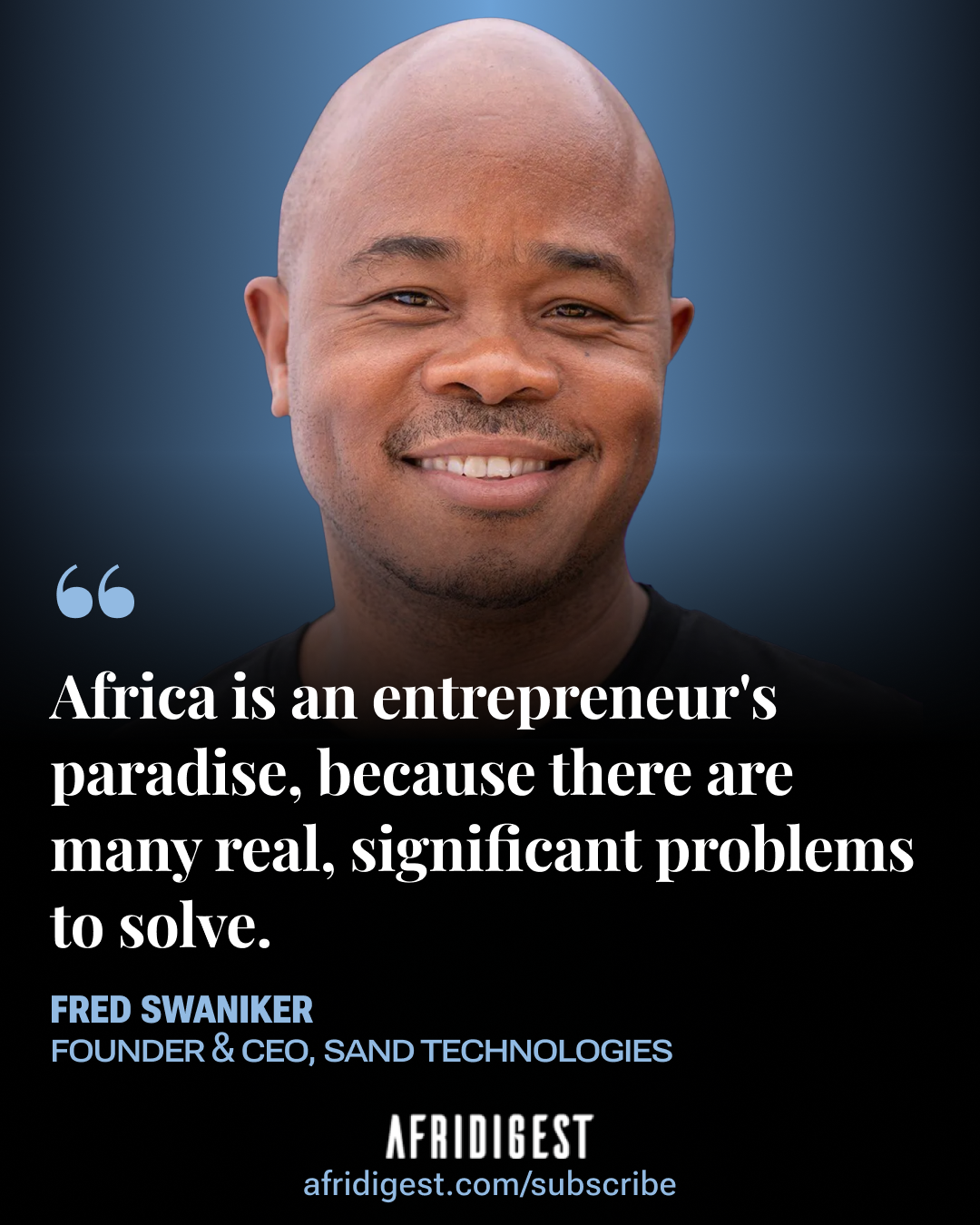“Africa is an entrepreneur’s paradise.”
That’s Ghanaian serial entrepreneur Fred Swaniker challenging conventional wisdom about building businesses in African markets.
“While entrepreneurs in other parts of the world might focus on building the next viral social media app, we face urgent, fundamental challenges: education, job creation, healthcare, the economy, climate change, and infrastructure.”
This “bittersweet” reality creates unparalleled opportunity, Swaniker argues.

“Entrepreneurs succeed by solving problems for society. Real problems create real demand for real solutions. There’s room to innovate and build something that truly matters — not just for ourselves, but for entire communities, industries, and nations.”
Swaniker doesn’t just talk the talk, he walks the walk.
Over the last two decades, he’s raised over $1 billion for ventures that infuse leadership training with tech skills to develop the continent’s next generation of innovators — like African Leadership Academy (2004), African Leadership University (2013), and ALX Africa (2018).
But it’s not just about building in Africa for Africa.
Now, he’s building enterprise AI firm Sand Technologies as a vehicle to employ the technology talent being created by African Leadership Group, to bring in foreign exchange into Africa, and to address some of the continent’s greatest challenges.
His vision?
Creating 100 million jobs through a “talent export strategy” that leverages Africa’s demographic advantage while keeping talent on the continent.
“Exporting our talent doesn’t necessarily mean brain drain,” Swaniker argues.
He outlines three approaches:
- Africans working remotely from the continent for global companies (his preferred model)
- Global tech giants establishing operations in Africa
- Strategic migration of skilled talent (similar to India’s approach)
The key is scale, he says.
“Brain drain only occurs if you are producing talent at low scale.”
“If you graduate 600 doctors a year and 300 leave, you have a problem. But if you produce 10,000 doctors and 1,000 leave, you still have 9,000 left.”
Sand Technologies exemplifies his preferred approach — building AI solutions for global clients while creating high-paying jobs for local talent.
Some ALX graduates now earn $5,000 monthly working remotely from Africa — 25x the $200 average for local graduates.
Swaniker’s secret to building at scale? Give it away.
“A lot of entrepreneurs want to keep everything to themselves. They want to keep all the power. They want to keep all the equity. They want to be the only one who has any control.
What I’ve learned is that if you want something to get big, you have to give it away. Give people titles. Call others co-founders. Give people equity. Give them ownership. Give them responsibility. They need to be on the same side with you.
Because when people own something, whether it’s financially or psychologically, they’ll then bring all of their energies and all of their ideas to bear.”
Questions to consider:
✦ What’s your take on Swaniker’s “entrepreneur’s paradise” thesis? Does having more fundamental problems truly give entrepreneurs in Africa an advantage or does it create additional barriers to success?
✦ What about the “talent export” strategy? Do you see it as a viable path to prosperity or does it risk perpetuating dependency on external markets?
✦ How important is it for African entrepreneurs to focus on local problems vs. building for the world?





Share: